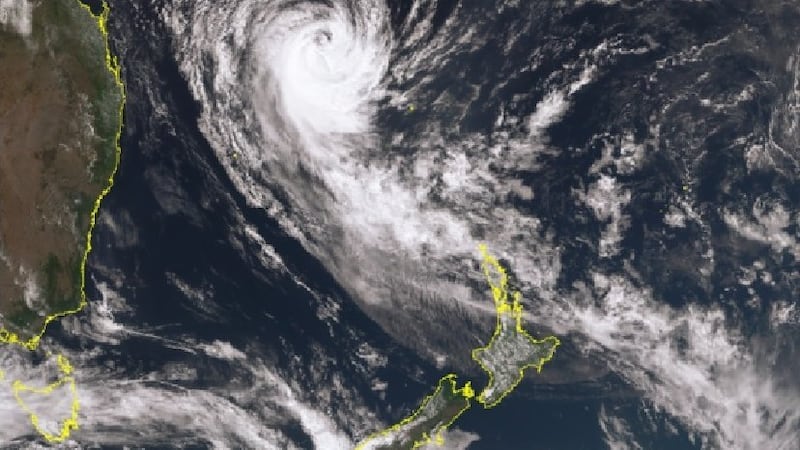The cyclone is curving southeast towards New Zealand. Source: MetService
New Zealanders are being urged to plan ahead as Cyclone Gita gears towards the country, expected to bring "significant severe weather".
MetService says the centre of the storm is expected to cross over the Upper South Island late Tuesday and early Wednesday.
“The upper South Island and lower North Island will be hardest hit, with extensive areas of both heavy rain and gale force winds.”
Civil Defence manager Sarah Stuart-Black says the cyclone “has the potential to pack a punch and cause a lot of disruption.”
“Now is the perfect time to plan ahead,” she says.
“This means preparing for the possibility of power cuts, water outages and road closures that could leave you or your loved ones stranded. It’s also a good idea to have a grab bag ready in case you need to evacuate. If you don’t have a household emergency plan, now’s the time to sit down with your family or flatmates and get it done.”
Alongside the rain and wind, heavy swells are forecast as Gita marches eastward, and storm surge is a possibility for coastal areas of Central New Zealand.
Weather warnings
MetService says much of the country is under a severe weather watch for the possibility that the weather will become severe.
Heavy rain warnings are in place for Nelson, Buller, Marlborough, Wellington, the ranges of Westland and Canterbury High Country.
“Heavy rain may cause streams and rivers to rise rapidly. Surface flooding and slips are also possible and driving conditions may be hazardous,” says MetService.
Wind warnings are in place for Taranaki, Taihape, Whanganui, Nelson, Buller, Marlborough and Canterbury.
“Strong wind gusts could damage trees, power lines, and unsecured structures. Driving may be hazardous, especially for high-sided vehicles and motorcycles.”
Civil Defence tips to stay safe
- Secure, or move inside, anything that could cause damage in strong winds
- Close windows and doors. Close curtains to prevent injury from breaking windows
- Stay inside and bring your pets inside. If you have to leave, take them with you
- Listen to the radio and follow the instructions of emergency services
- Avoid non-essential travel during severe weather, and never drive through floodwaters

